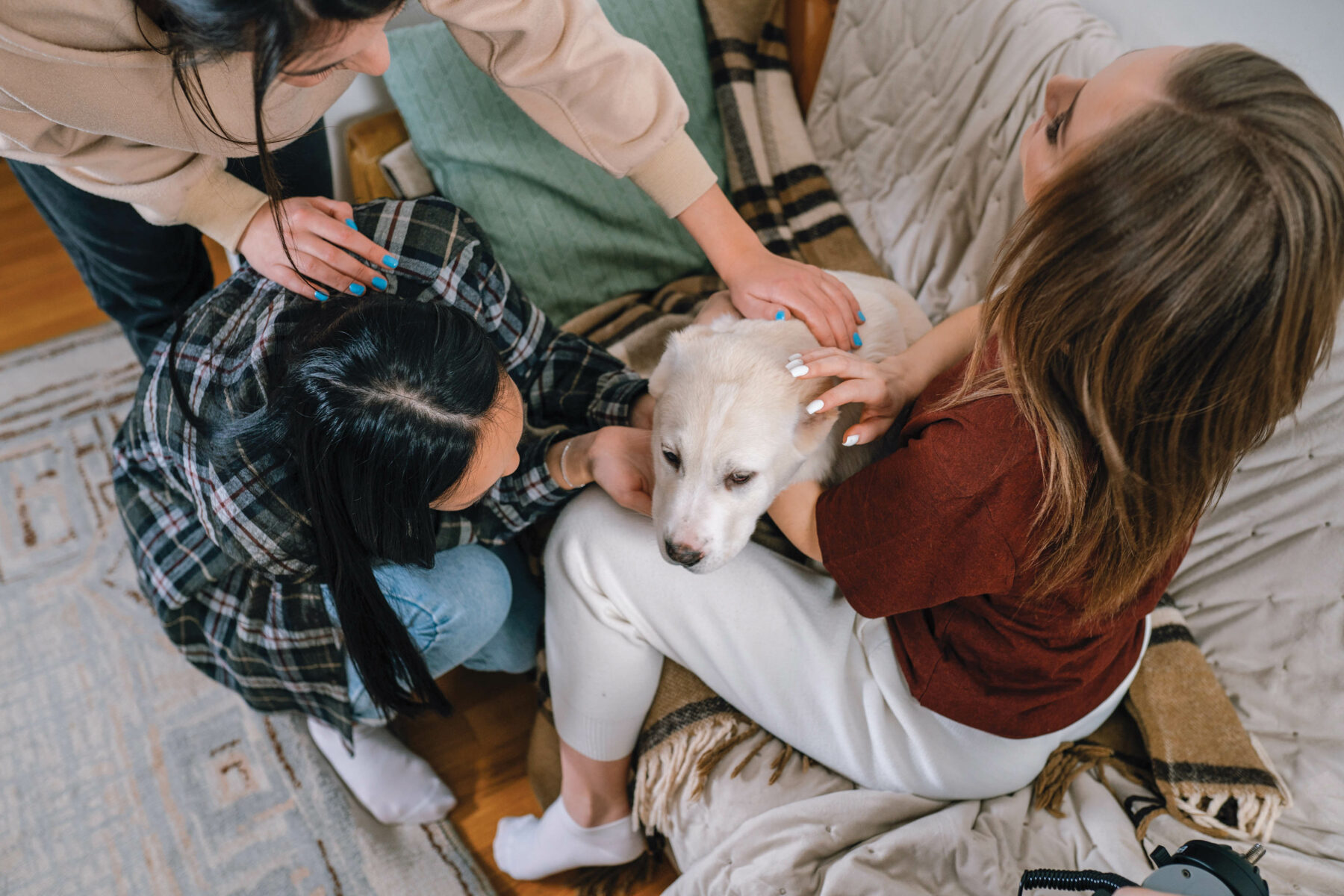The Growing Trend of Emotional Support Animals

Since 2009, the National Service Animal Registry has helped around 115, 832 animals become registered as emotional support animals — and this trend only continues to grow.
With an increasingly stressful, fearful and overwhelming world around us, it’s no surprise people are seeking companionship and comfort in large numbers. In the past few years alone, we’ve experienced economic uncertainty, social unrest and extreme isolation as a response to COVID-19. This is exacerbated by a rise in virtual communication, such as social media, texting and even video meetings, that has facilitated further relational isolation, often replacing the experience of physical, face-to-face connection.
It’s well-documented that animals can provide companionship and a presence that’s calming, both physically and psychologically, but why the need for an emotional support animal?

What is an Emotional Support Animal?
While the function of a service animal is to provide a specific task for its owner — whether it’s helping a blind person navigate the world, alerting a diabetic when their blood sugar hits dangerous levels or even providing specific assistance during a mental health crisis — an emotional support animal (ESA) offers a calming and regulating effect on the emotional state of their owner with their presence alone, helping to calm the nervous system and provide an experience of connection.
Service animals generally go through extensive training, testing and certification; their owners must exhibit a clear need through a mental or physical disability. To be legally considered an ESA, the animal must be prescribed by a licensed mental health professional. However, the process is less regulated.
Texas laws ensure service animals can accompany their owner inside most establishments, while ESAs are not covered under this law, though some institutions will approve ESAs with proper documentation.
Things to Consider About ESAs

There are a number of conditions that may be improved by an ESA. Anxiety, depression, obsessive-compulsive disorder, post-traumatic stress disorder and even panic attacks can all benefit from the soothing, calming presence and companionship of a trusted, familiar pet.
In addition to these benefits, one less-discussed but important advantage of ESAs is the therapeutic aspect of caring for another being. When we serve other humans, and even pets, through feeding, protection or companionship, there’s a beneficial effect on the disorders listed above.
Despite the many advantages, there are some important considerations for those contemplating an ESA. Be thoughtful about the attributes of the animal. Many puppies turn into large dogs, who require expensive food, medical treatment and physical activity. Even the type of animal and its breed should be considered; ensure the animal, through its entire lifespan, will fit into your lifestyle and living abilities.
No Substitution for Human Connection
Humans are relational beings, and meaningful relationships with other humans are fundamentally important to our well-being. From the time we’re born to when we take our last breath, these relationships shape and form us, both physically and emotionally. While an animal can supplement this type of relationship, it’s vital to note that it cannot replace it.
If you feel that an ESA might be beneficial to your mental health, consider reaching out to a therapist for an assessment. Before applying any treatment, it’s important to understand the origins and foundations of our distress and explore them in a therapeutic setting. While your treatment plan may include a support animal, it likely will not be the only intervention that can help you achieve emotional health and wellness, as well as meaningful, supportive connections with other people.
Impersonating an ESA
There is a widespread belief that many are taking advantage of, or even faking, their need for a support animal. Remember that as humans, we’re infinitely complex and unique, and each of us is sorely unequipped to make assumptions about someone else’s circumstances.
The benefits of an ESA often cannot be seen or recognized externally. When considering what might be true or helpful for someone else, as a rule of thumb, it’s best to always choose the most generous interpretation.
About the Author

At Ethos Wellness, Tad Bodeman, LCSW serves both couples and individuals struggling with trauma and troubles of the heart, while fostering joy and peace and deepening communication skills and intimacy.






